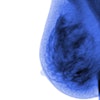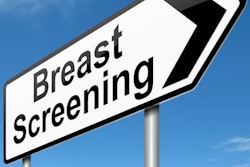
The COVID-19 pandemic caused a sharp decline in cancer screening in the U.S., and almost 4 million breast screening exams still need to be caught up, according to new research published Thursday in JAMA Oncology.
A research team led by Dr. Ronald Chen from the University of Kansas found that breast cancer screening declined 90.8% in April 2020 compared with the same period the year before, with colorectal cancer screening and prostate cancer screenings declining by 79.3% and 63.4% in the same month, respectively. The group also found that the pandemic caused a cancer screening deficit of 9.4 million exams across the U.S. among the screening exams included in the study.
While screening rates reached near-complete recovery by July 2020 for breast and prostate cancers, a deficit remained in total screening from January through July 2020 compared with 2019. This translated to an estimated absolute deficit of breast cancer screening exams of 3.9 million women across the entire U.S. population.
"That's how many that need to be made up," Chen told AuntMinnie.com.
The COVID-19 pandemic disrupted healthcare across the U.S., resulting from states implementing stay-at-home orders and clinics reducing nonemergency appointments. Researchers say routine cancer screening is important to detect cancers at an early stage when it is most curable.
"The consequence of millions of people missing cancer screening due to the COVID pandemic is a delay in detection of cancer," Chen told AuntMinnie.com. "Unfortunately, by causing cancellations of appointments and cancer screenings, COVID will indirectly cause an increase in cancer deaths, another negative consequence of COVID that has not yet received much public attention."
The researchers analyzed a database of about 60 million insured individuals and looked at declines and disparities associated with geography and socioeconomic status.
For all three cancers studied, monthly cancer screening decreased the earliest in the Northeast and recovered the slowest in the West. Chen told AuntMinnie.com that this is likely related to the differential timing of COVID-19 pandemic hitting different areas of the country.
For the same three cancers, the team's data suggest that the pandemic had a bigger negative association with cancer screening for individuals in the highest socioeconomic index quartile. This closed the gap in cancer screening by socioeconomic status index in the same timeframe in 2020.
The group looked at January through July of 2019 and 2020, the declines in cancer screening in the latter year for the highest socioeconomic status quartile versus the lowest quartile were as shown in the table below.
| Impact of COVID-19 pandemic on screening rates, by socioeconomic status | ||
| Lowest quartile of socioeconomic status | Highest quartile of socioeconomic status | |
| Breast cancer | -26.1% | -30% |
| Colorectal cancer | -25.6% | -30.2% |
| Prostate cancer | -11.5% | -18.9% |
Study authors called for public health efforts to address the screening deficit associated with the pandemic, including increased use of screening modalities that do not require a procedure, such as prostate cancer screening, which relies on a blood test, as opposed to colonoscopy or mammography.
The study's limitations include only analyzing insured individuals and the lack of race and ethnicity information for analysis. Some codes in the analysis also did not distinguish between screening versus testing for another clinical indication.
"Our inclusion of individuals without a history of the cancer of interest partially mitigated the limitation of inaccurately counting a test performed for nonscreening purposes," the authors wrote.
Chen told AuntMinnie.com that his team is currently working on additional studies looking at the impact of COVID-19 on other aspects of cancer care, including cancer diagnoses and treatments.
"These studies are necessary so the cancer community can design strategies to mitigate the negative impact of COVID-19 on cancer patients," he said.




















